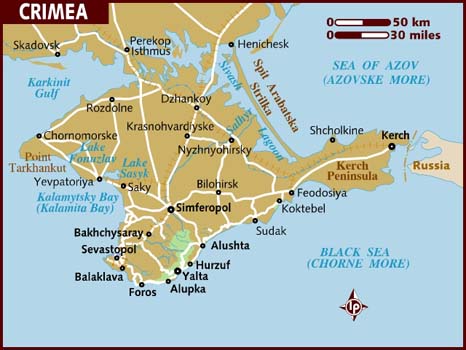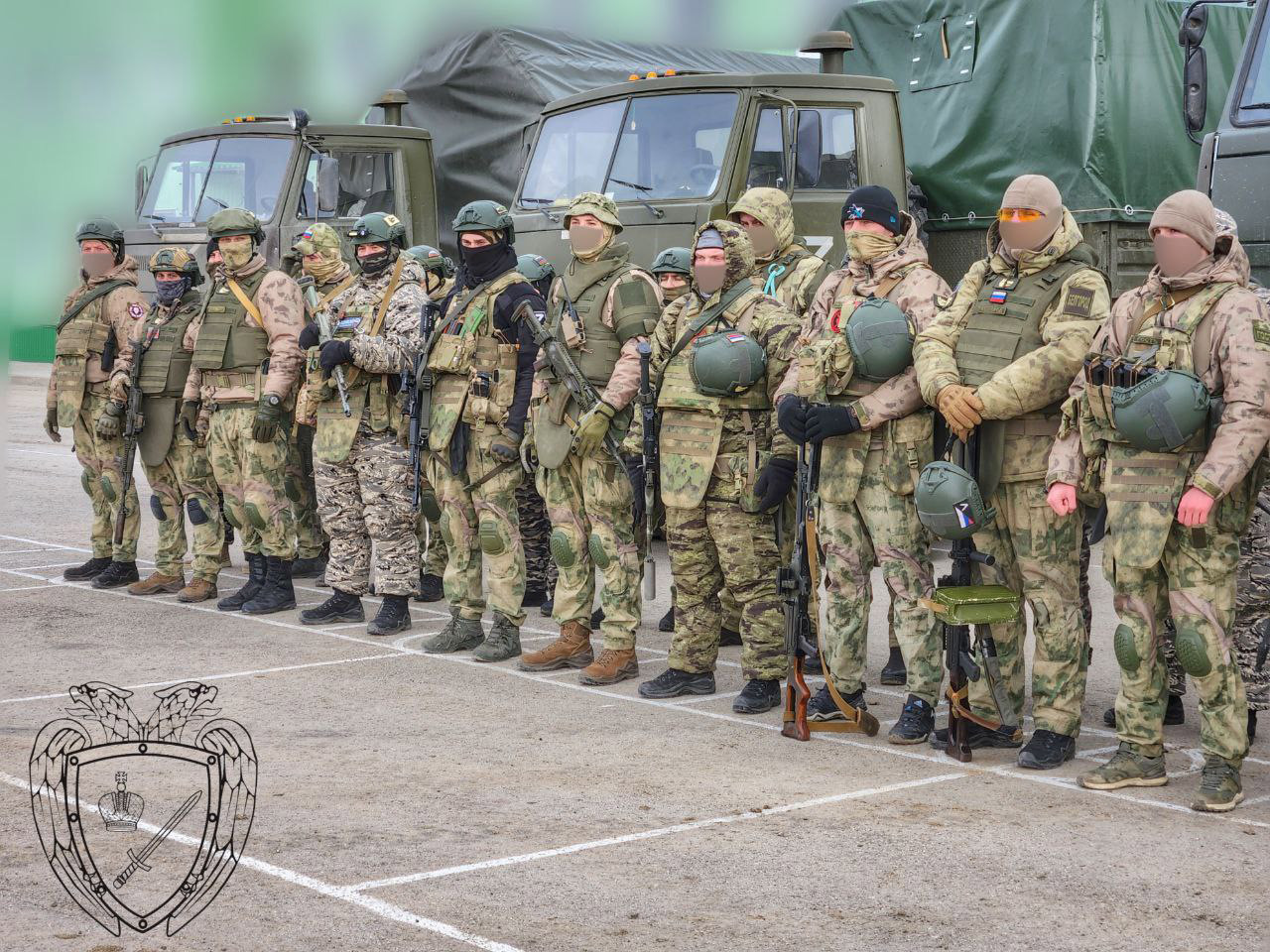Lenur Khalilov and Ruslan Mesutov were sentenced to 18 years’ imprisonment, Ruslan Nagayev — 13, and Eldar Kantimirov — 12 years, for alleged involvement with the Hizb ut-Tahrir Islamic organization.
Speaking otherwise, for a crime they never committed.
Why these charges against Crimean Tatars? Is Hizb ut-Tahrir really a terrorist organization? How and to what extent does Russia fabricate trials in the occupied peninsula?
16 August 2021. More than 150 people have gone all the way from occupied Crimea to Rostov-on-Don in Russia. They now stand near the building of the Southern Regional Military Court, guarded by the armed officers of the National Guard of Russia. Across from them, older people say a collective prayer. Their posters and white vests read “learning religion is not terrorism,” “no to state terror,” “stop repressions,” “no to family repressions,” “Crimean Tatars are not terrorists.”



Inside the building, four Crimean Tatar political prisoners sit in silence. They are awaiting their verdicts by a Russian kangaroo court, only for their faith and civic courage in the Moscow-occupied peninsula.
Ruslan Mesutov wears a shirt with words “court without the right to speak,” Eldar Kantimirov’s top says “learning religion is not terrorism,” Lenur Khalilov’s inscription stipulates “1944 — appointed as a traitor”
(Stalin forcibly deported the Crimean Tatar population from the peninsula to the east of the USSR in 1944 under the made-up pretext of collaborating with the Nazis, or being “traitors”). It echoes with the words on the shirt of Ruslan Nagayev: “2016 — appointed as a terrorist” (in 2016, Russia filed the first Hizb ut-Tahrir case against Crimean Tatars).
The “court,” represented by the presiding judge Roman Saprunov, reads the nine-minute verdict. When asked if the sentence is understood, the defendants stand in silence. The judge explains to them their rights and duties. They do not listen, only smile at their family members.
All four men were arrested on 10 June 2019, following searches in their homes. Before that, Ruslan Nagayev did business in the seaside city of Alushta, Lenur Khalilov was the head and founder of the Islamic community “Alushta.” Ruslan Mesutov worked there as a guard. Eldar Kantimirov graduated from the Islamic University in Kyiv, he is an Arabic language pundit.
What is Hizb ut-Tahrir?
The four defendants are accused of alleged affiliation with Hizb ut-Tahrir. According to the FSB, Mesutov and Khalilov no later than 14 June 2018, allegedly organised a terrorist unit of this organization in Alushta city in Crimea and engaged Nagayev and Kantimirov in the entity.
Since the occupation of the peninsula, Russia has used Hizb ut-Tahrir allegations against Crimean Tatars and Ukrainians who profess Islam to gag their activism, trampling upon the Geneva Convention which prohibits using national laws of the occupying power on occupied territory.
Crimean Tatars accused of involvement with the Islamic organization are divided into 12 groups, based on geography. These four defendants form the “Alushta” group sharing the name with their native city in Crimea.
As a defense lawyer in such cases, Nikolai Polozov
emphasizes that innocent people are basically accused of reading specific literature and discussing religious topics. And their sentences are staggering.
The purpose of this systemic attack, as Polozov believes, is nurturing the “Islamophobic policy directed towards creating an atmosphere of fear and hatred of the local community and the visitors towards Crimean Tatars who profess Islam.”
Russia’s vile attempts to discredit the Crimean Tatars must not be kept silent
He further highlights that “the notion of “terrorism” in Crimea is being exploited merely with mercantilist political objectives but the victims of such policy of Russian authorities have become hundreds of people -- the victims of political repressions, their family members, particularly kids.”
Russia’s renowned Memorial Human Rights Center recognized Mesutov, Khalilov, Nagayev, and Kantimirov as political prisoners because judges ruled that their alleged membership in the organization alone, without committing illegal acts, is a sufficient condition for lengthy terms behind bars.
Lawyer Aider Azamatov called the sentences “illegal” and mentioned that they are higher than those imposed for murder, under Russian legislation.
Earlier, the European Parliament called upon Russia to release all Ukrainian political prisoners, including the defendants in the said cases, in its resolution of 18 July 2019. Ukrainian human rights organizations condemned
this yet another sentence against Crimean Tatars. And the UK also urged Moscow to free the four detainees.
https://twitter.com/MelSimmonsFCDO/status/1427581103863476226
How unfair was the trial?
The trial of the four defendants of the “Alushta” Hizb ut-Tahrir group, like any other similar trial, was heavily flawed.
Pull off a kangaroo court in five easy steps: a how-to guide from Russia
The four Crimean Tatars neither planned to carry out nor committed terrorist acts. No weapons or plans for launching an attack were discovered. The only “evidence” of their alleged involvement in terrorism is audio recordings of them discussing politics and religion, religious literature “found” (but in reality, planted by the FSB) during the searches, and secret witnesses’ testimonies. All of them are incompetent at the root. Here is why.
First, the illegally obtained recordings of the defendants’ discussions about religion were indistinct and almost impossible to understand. Like always, the tapes were sent to FSB’s pocket “experts” who just carried out an order from the top and interpreted audio files to the prosecutor’s advantage.
As for the prohibited literature “found” during often violent armed searches conducted by security officers in Crimean Tatars’ homes, such books are often “discovered” in places where practising Muslims would never store them, such as in a kitchen shelf, in a pot, near a toilet or dog’s kennel. That is because the books are planted by the FSB or other enforcement officers themselves.
Other “evidence” in this case was presented by two classified witnesses. The basis for hiding their identity remains shrouded in mystery and judges turn down appeals for disclosure of their identity, taking witnesses’ statements as necessarily true. The identity of one of the witnesses is unknown while the other one, Enver Khalilov, is believed to have met with the men on commission from the FSB. These two people are the only witnesses giving testimony against the defendants.
Previously, Moscow lost a case at the European Court of Human Rights over a sentence based exclusively on testimony that cannot be checked. And in a report on the situation from April 2014 – April 2020, ODHCR analyzed similar Hizb ut-Tahrir cases against the Crimean Tatars, where anonymous witness testimonies were provided, and noted that “in none of these cases did judges verify that the interests of the witnesses in remaining anonymous could justify limiting the rights of the defence to fully cross-examine witnesses.”
Related:
- Russia tried to break the Crimean Tatars. Their non-violent resistance only grew stronger.
- Torture and imprisonment is the price of freedom of speech in Russia-occupied Crimea
- “Hell. Despair. The feeling of absurdity.” Ukrainian journalist jailed in occupied Crimea describes FSB torture in harrowing letters
- Seven years of occupation of Crimea: human rights activists systematise human rights violations on peninsula
- “I do not want my children to live in a country of terror.” Four inspiring letters from Crimean Tatar political prisoners not broken by Russia
- Russia’s vile attempts to discredit the Crimean Tatars must not be kept silent
- Pull off a kangaroo court in five easy steps: a how-to guide from Russia
- Photo project spotlights Crimean Tatar kids born after their fathers’ unlawful arrests by Russian occupation authorities
- Russian prison system is a ticking time bomb for health of a Crimean Tatar
- Painkillers instead of hospital: Russia’s torture of critically-ill Crimean Tatar political prisoners continues unabated





